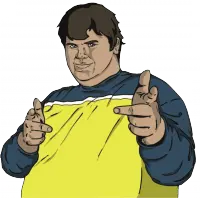First up this edition, we have Christopher Derrick with the following paragraph:
It was a coup for Harris to set eyes upon his granddaughter’s killer coming out of the Exxon service station at the Morgantown exit off the I-95. Harris normally skipped that pricey by-the-freeway gas, but he needed to clean the splattered bird shit off on his window. The sighting rang the death knell to the endless nights of slurping sludge that masqueraded as coffee and nibbling on dried donuts while roving through Recession-blighted towns. Harris had been hunting this harbinger of despair going on four months now, and his ardent daily prayer now had been answered. However, as they reckon, when God wishes to punish you, he answers your prayers.
Christopher says: I want to bring readers into what is hopefully a controversial and twisted revenge story.
A controversial and twisted revenge story is certainly an alluring premise, and there’s a good set up happening in this opening. But lets get down to business:
On first read, I found this paragraph a little confusing and some of the sentence structures and word choice a little cumbersome. I’m not sure the word “coup” is being used correctly here. Also, the phrase “set eyes upon” distances us from the action. “Exiting the service station” is potentially ambiguous—is he pulling away from the gas pump? Or is he walking out of the convenience store? I’m going to assume the latter. The important piece in that opening sentence is that the granddaughter’s killer is spotted. A little bit of setting and context are needed, but we can probably cut to the chase more efficiently.
In the third sentence we have a long string of qualifiers before getting to the meat. This sentence in essence is saying “the search was over,” but it is prefaced with “the sighting” and “rang the death knell” and “to the endless.” Also the phrase “rang the death knell” is a bit hyperbolic—especially when we’re looking at finding a killer, to use language about death in a much less severe context weakens the impact. “Harbinger of despair” is also a bit hyperbolic. Phrases like this sometimes have the opposite of the intended effect. The goal is to make this guy sound creepy, but using a phrase that is over-the-top or clichéd can make it lose all impact. The solution is to either cut it, and let it be implied by context and atmosphere, or to include something more specific—an action or a concrete description which will give the correct vibe.
In the last sentence, the word “reckon” doesn’t seem like the right word. This one might be a matter of opinion, so use your judgment.

Revision:
Harris looked up from pumping his gas and saw his granddaughter’s killer exiting the convenience store. A completely by-chance encounter after four months of all-nighters roving through recession-blighted towns hunting the man, subsisting off of dried donuts and sludge that masqueraded as coffee. Here at the Exxon service station at the Morgantown exit off the I-95—that pricey by-the-freeway gas he usually skipped except that he had to clean splattered bird shit off his window—his ardent daily prayers had been answered. But as they say, when God wishes to punish you, answering your prayers is exactly how he does it.
Next up we have Shawn with the following passage:
“Age?”
“Twenty-five, I think”
“You think?”
“You want the truth, right? That’s as best as I know. We were in the same grade in school, but he might have been held back. Or skipped. Hard to say.”
“Oh?”
“You know the way some kids would tie a string around their finger and make it turn red, then purple? He liked to do that to his head.”
“His head?”
“Yeah. He’d get a length of string and wrap it around and around his head tightly. Not his neck—just his face.”
“And what does he do now?”
“He’s a photographer.”
“Oh?”
“Likes to take pornographic pictures of fruit and vegetables engaging in erotic acts.”
“Does that pay well?”
“Oh, there’s a market for anything.”
Shawn says: This is for a story that starts with a man talking to a police detective in order to find his missing friend.
The dialogue in this piece sounds natural and interesting, but unless you’re experimenting with the idea of telling a whole story in dialogue, this piece could use some grounding. A reader can put this exchange in better context if they know who is talking, who they’re talking about, and where they are. Some physical description of the speakers can also give us a sense of character. And some body language thrown in the mix can tell us more than the words do.
The only other thing that caught my attention was the fact that you used the word “Oh” in three separate places. So there isn’t much I felt I should cut or change in this piece. My revision consists mostly of just adding scene, setting, and character descriptions in. Obviously my choice of description may not at all be what you had in mind, so it’s just there to give you an idea of the type of things you might want to include.

Revision:
The detective’s desk was a messy arrangement of files, old coffee cups, and poorly framed family photos. Behind the desk the perfectly groomed detective sat in suit and tie, notepad at the ready. Across from him was John, an overweight, greasy-haired twenty-something who looked the sort to play World of Warcraft for month-long binges, subsisting off cheese puffs while neglecting hygiene. John was there relaying the details of his missing roommate.
“What was his age?” said the detective.
“Twenty-five, I think.” John attempted to sit perfectly upright despite his constitution. Possibly nervous, possibly hiding something.
“You think?” The detective looked up from his notepad.
“You want the truth, right? That’s as best as I know. We were in the same grade in school, but he might have been held back. Or skipped. Hard to say.”
“Right, well, what else can you tell me?”
“You know the way some kids would tie a string around their finger and make it turn red, then purple? He liked to do that to his head.”
“His head?”
“Yeah. He’d get a length of string and wrap it around and around his head tightly. Not his neck—just his face.”
“We’re still talking about grade school?"
John nodded.
“And what does he do now?”
“He’s a photographer.”
“Oh?”
John looked sideways at a drug prevention posted hanging on the wall. “Likes to take pornographic pictures of fruit and vegetables engaging in erotic acts.”
The detective leaned back in his seat, face scrunching in concentration as he tried to make sense of John’s awkwardness. “Does that pay well?”
“There’s a market for anything,” John looked back at him, smiling maybe a little too big.
That concludes this edition! Feel free to discuss these edits and make other suggestions in the comments.
Also: I need more paragraphs to edit! Inundate me with yours either by posting in the comments or by messaging me. You can remain anonymous if you’d like. Just send me 300 words or less and a sentence or two explaining your goals or concerns, and I’ll see what I can do!

About the author
Gayle Towell’s stories have won the 2013 Women’s National Book Association writing contest, the 2014 Willamette Writers Kay Snow fiction award, and have been published in Menacing Hedge, Pif Magazine, and the Burnt Tongues anthology among other places. Her novella Blood Gravity was released through Blue Skirt Productions in September 2014. Gayle is the founding editor of Microfiction Monday Magazine and cofounder of Blue Skirt Productions, an artists’ collective. For more information, visit gayletowell.com.







